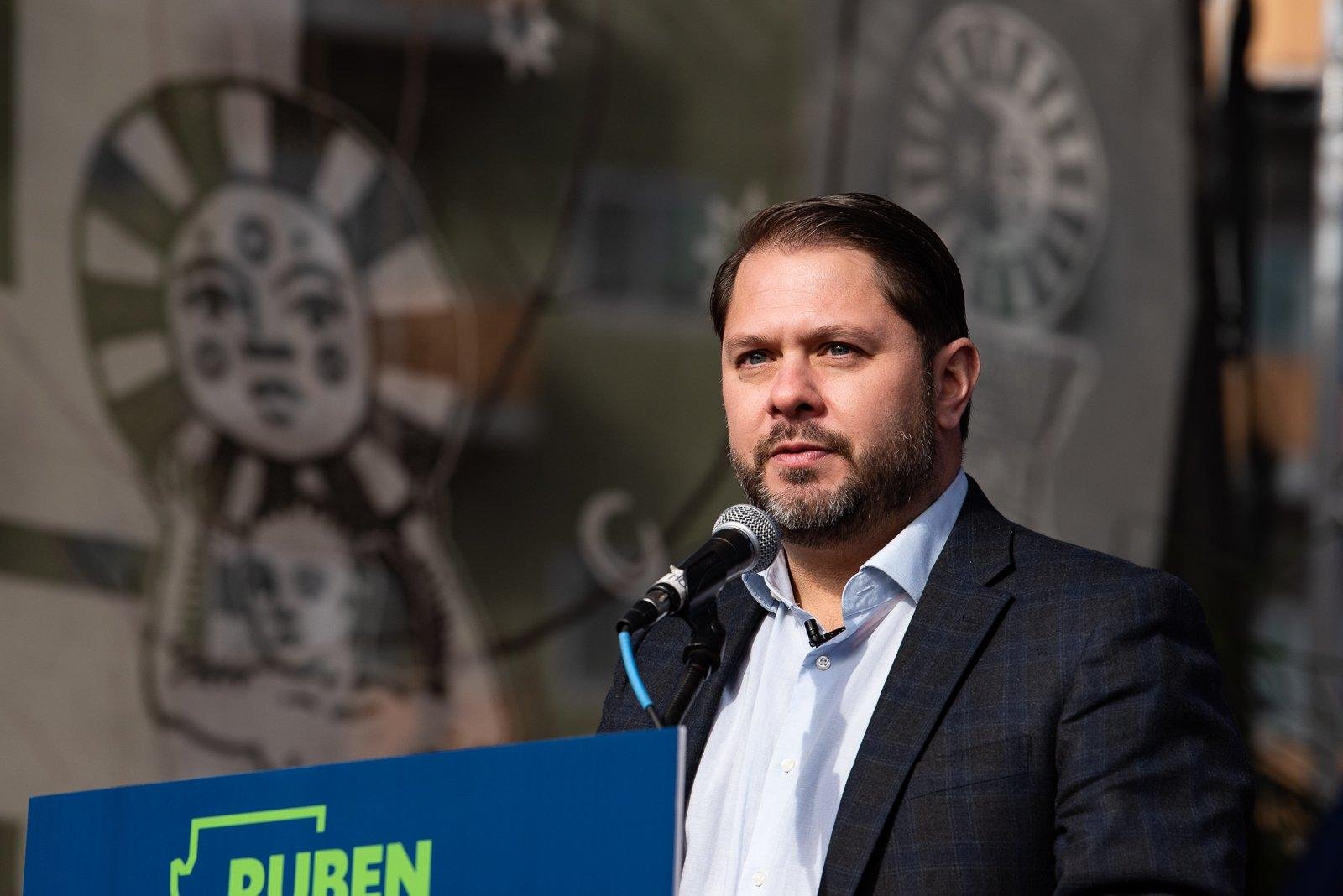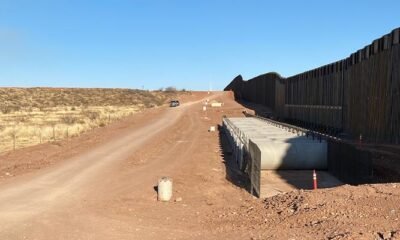border
Gallego’s Immigration Plan: Strengthening Border Patrol and Opening Doors for Dreamers

U.S. Senator Ruben Gallego of Arizona has unveiled a comprehensive five-pillar immigration plan amid ongoing border enforcement by the Trump administration. Announced on Monday, this proposal aims to create a balanced approach to immigration reform while enhancing border security.
In his statement, Gallego emphasized, “We don’t have to choose between border security and immigration reform. Americans deserve the right to feel safe, knowing their border is secure.” The senator criticized the prevailing political gridlock that has hindered comprehensive immigration solutions for decades.
The initiative, titled “Securing the Border and Fueling Economic Prosperity,” seeks to address crucial issues such as increasing Border Patrol personnel and investing in border infrastructure. It also emphasizes legal pathways for undocumented immigrants, particularly those known as “Dreamers,” to attain citizenship.
Support for Gallego’s plan has emerged from various sectors, including immigration advocates and business leaders across Arizona. The proposal outlines a strategic framework to enhance border security while reforming the asylum process and investing in technological advancements at border crossings to combat drug trafficking.
Central to the plan are proposals to bolster staffing for Border Patrol, construct additional barriers where necessary, and expedite the migrant processing system. Gallego aims to streamline procedures by establishing regional processing centers, thus freeing resources for frontline agents.
The second pillar focuses on asylum reform, aiming to tackle the backlog in immigration courts, which currently exceeds 3.6 million cases. Gallego’s plan stresses the importance of adjudicating claims in a timely manner while maintaining a humane approach to processing asylum seekers.
Gallego, elected after a hard-fought campaign against Kari Lake, has publicly expressed a willingness to collaborate with the Trump administration on border security, diverging from many party lines. He previously voted for the Laken Riley Act, a Republican-backed measure aimed at mandatory detention for accused undocumented immigrants.
The proposed reforms hark back to previous bipartisan efforts like the 2013 Gang of Eight immigration reform, which included pathways to citizenship and a significant increase in Border Patrol staffing. Although gaining support, such measures faced strong opposition, particularly in the House.
Gallego’s plan addresses a significant historical failure by Congress to foster a functional immigration system that aligns with economic needs. “Some politicians have cynically chosen to keep the issue alive,” he noted, calling for a solution that balances security with humanity.
Furthermore, the proposal acknowledges international responsibilities, urging countries along migration routes to assist in resettling asylum seekers and address underlying causes of migration, such as economic instability.
With nearly one million refugees currently residing in Mexico and Costa Rica hosting a substantial number of migrants, Gallego’s call for regional cooperation is timely. He urges a collective response to facilitate safe migration pathways.
Support for the plan has been robust, with organizations like the American Immigration Lawyers Association praising its focus on securing the border while simultaneously introducing vital reforms to legalize the status of undocumented individuals.
“His plan represents a strong step toward reform that benefits both our communities and our economy,” commented Mónica S. Villalobos, president and CEO of the Arizona Hispanic Chamber of Commerce. This reflects a growing consensus on the need for a reformed immigration system that aligns with the economic and social realities of contemporary America.


















